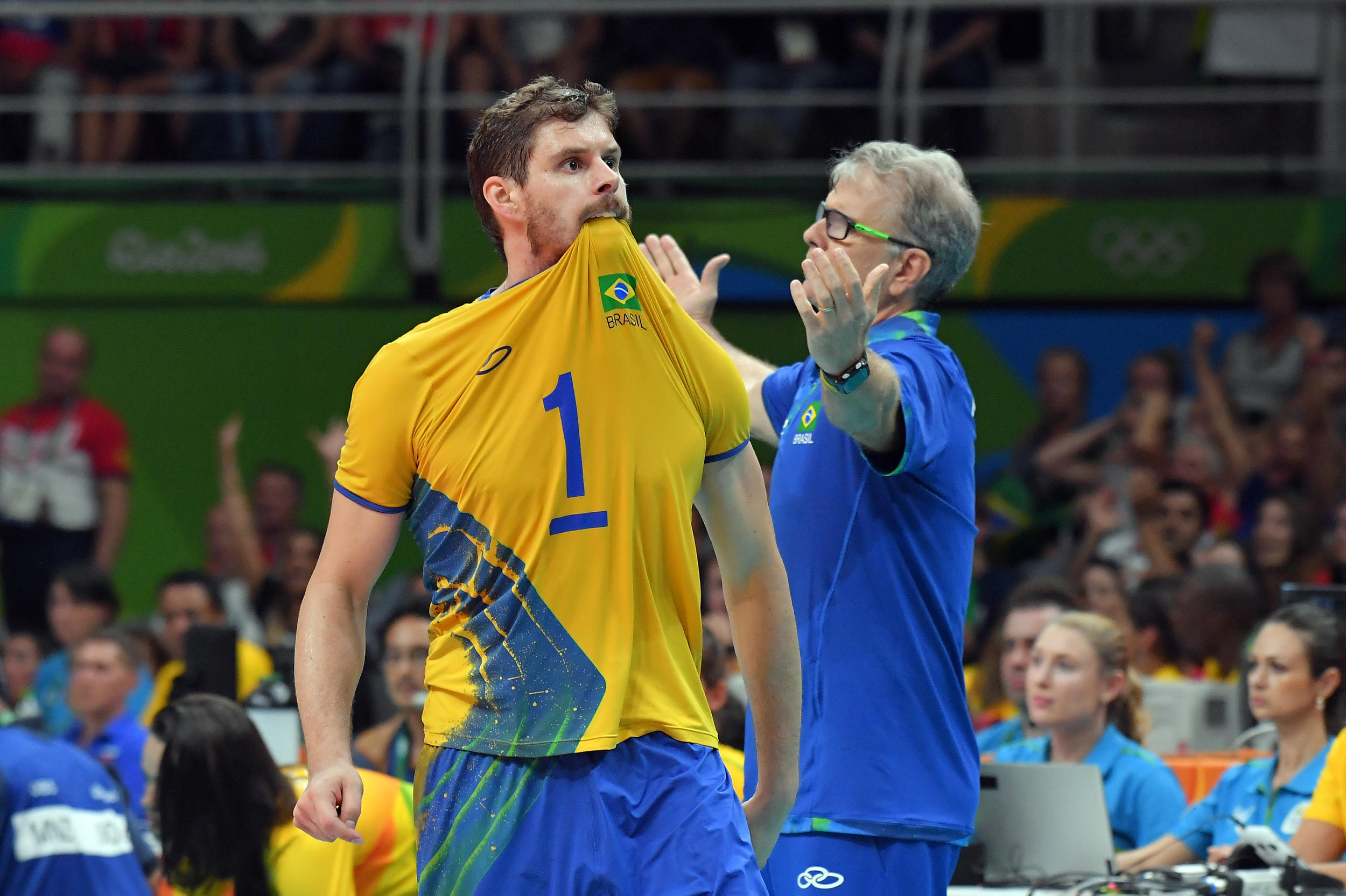Bruno Rezende, the Brazilian setter, affectionately known as "Bruninho" and respected by volleyball players around the world, played a major role in helping his team win the gold medal at the Rio Olympics, held in his home country. However, it wasn't all smooth sailing along the way.
Selected for the national team and the Beijing Olympics
Bruno was born to former Brazilian national team coach Bernardo Rezende and former Brazilian women's national team player Vera Mossa. He was a true thoroughbred. His parents divorced when Bruno was young, but young Bruno's talents continued to grow, and in 2003, at the age of 17, he joined Florianopolis, a top Brazilian club, and won the league championship in his first season. In 2005, he was selected for the Brazilian junior national team, and won a silver medal at the U-19 World Championship, giving him a foothold in the senior national team.
He won the Brazilian Superliga Best Setter Award for two consecutive years in 2006 and 2007. After that, after winning the World League in 2007, the genius setter Ricardo left the team, so Bruno was called up to the senior national team as the second setter. It was the year he turned 21. The Brazilian men's national team was in its golden age at the time, and that year they went on to win three titles, including the World Cup, and one silver medal. Although Bruno had few opportunities to play, he contributed to the team's victory as a member of the team. However, since the coach at the time was his father Bernardo, there were many voices in the media that said it was favoritism.
2008 was Bruno's first Olympic year. The World League, which was a prelude to the Olympics, was held in Brazil. It was also a tournament where they had a shot at an unprecedented sixth consecutive victory since 2003, but in the end they came in fourth place and didn't even get a medal. And at the Beijing Olympics, they made it to the finals, but were defeated by the United States, led by genius setter Roy Ball, and failed to win their second consecutive Olympic gold medal after Athens. Ricardo's absence was still a big one, and Marcelo, the starting setter, and Bruno must have felt a lot of pressure.
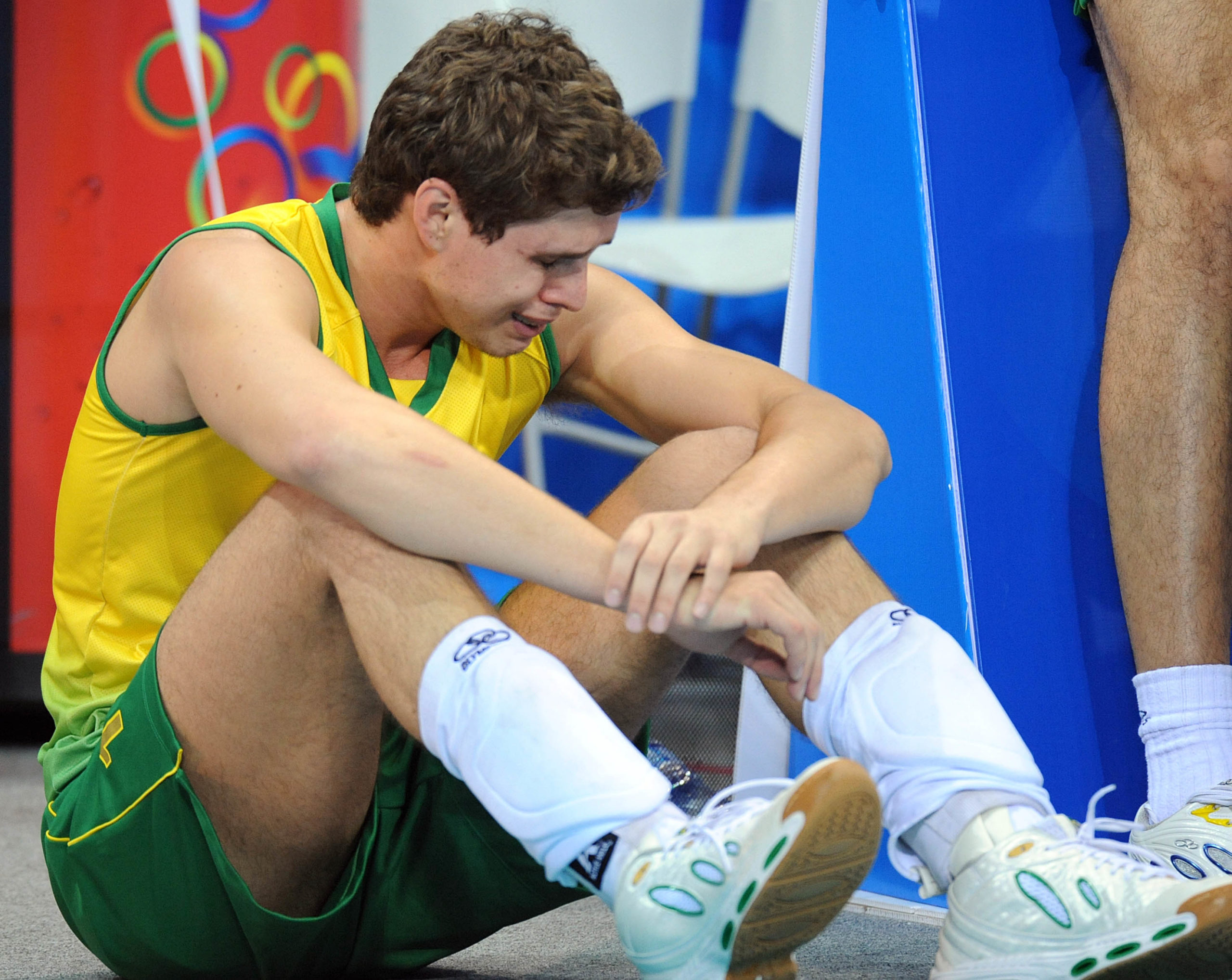
Beijing Olympics Photo by FIVB
To the representative regular setter
Since 2009, Bruno has been playing on the court as the starting setter for the Brazilian national team. Even though his father was the coach, he had already won the Brazilian Superliga Best Setter Award for three consecutive years since 2007, and his skills were certainly improving. The Brazilian national team also regained momentum with the emergence of new players such as Vissotto and Lucas, in addition to Bruno. In 2009, the team won four titles, including the World League. The following year, in 2010, they also won the World League and the World Championships. It was their third consecutive World Championship victory. Everyone thought that Brazil's era was still to come.
However, in the following year's World League in 2011, they lost to Russia in the final and came in second. And in the World Cup, they barely qualified to compete in the London Olympics, but they came in third and their chances of winning their first Olympic gold medal in two tournaments began to wane. And as expected, they couldn't even reach a medal in the World League, the pre-Olympic prelude, and even in the London Olympics, where they brought back the genius setter Ricardo from their golden age, they made it to the final, but allowed Russia to pull off a century's biggest comeback victory. Bruno's Olympics ended with another silver medal.
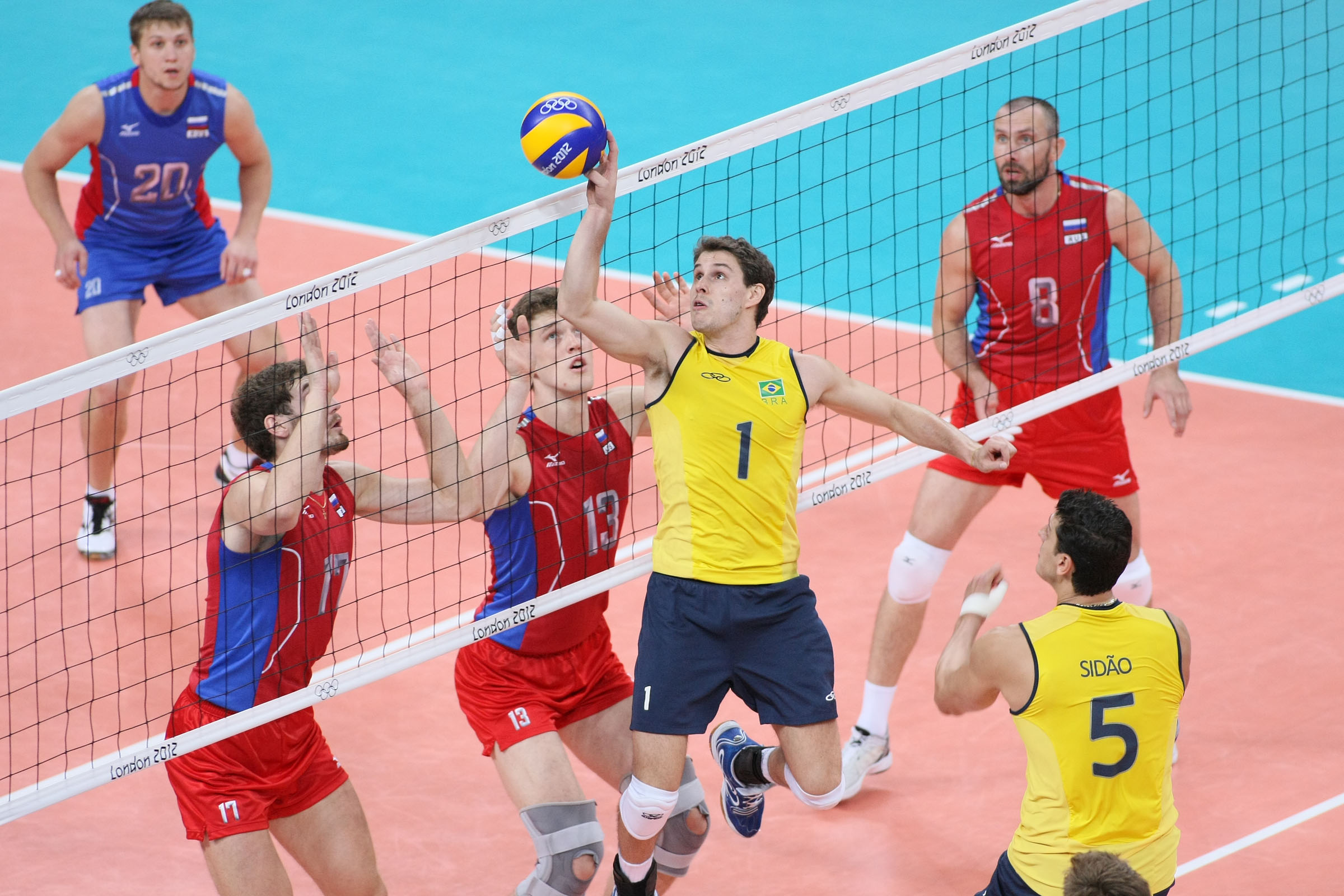
London Olympics Photo by FIVB
Third time's a charm
Bruno was given the captaincy of the national team from the following year, 2013. However, the Brazilian national team's struggles continued. Although they won the Grand Champion in 2013, they were always just a step away from winning the World League and World Championships until 2014. The former gold medal collector had become a silver medal collector. Once a perennial winner, second place was not acceptable. However, in the 2015 World League, which also served as a test for the Rio Olympics, they did not even come close to winning a medal, and the Rio Olympics were on the brink.
The fateful year of 2016. In the finals of the World League that year, Brazil lost to Serbia, who had missed out on the Olympics, and finished second. They were not in perfect condition. Then came the Rio Olympics. Bruno played the full game. Brazil lost to the United States and Italy in the qualifiers, barely making it through to the 4th place in Group A. However, after that, they defeated Argentina, who had finished 1st in Group B, 3-1 in the quarterfinals, and then they turned the support of the local crowd into strength, winning both the semifinals and the final 3-0 without any trouble. They finally won the gold medal that they had longed for in their own country. For Bruno, it was the third time lucky, as he had lost in the finals for two consecutive tournaments. It was the Olympic gold medal that father and son finally got.
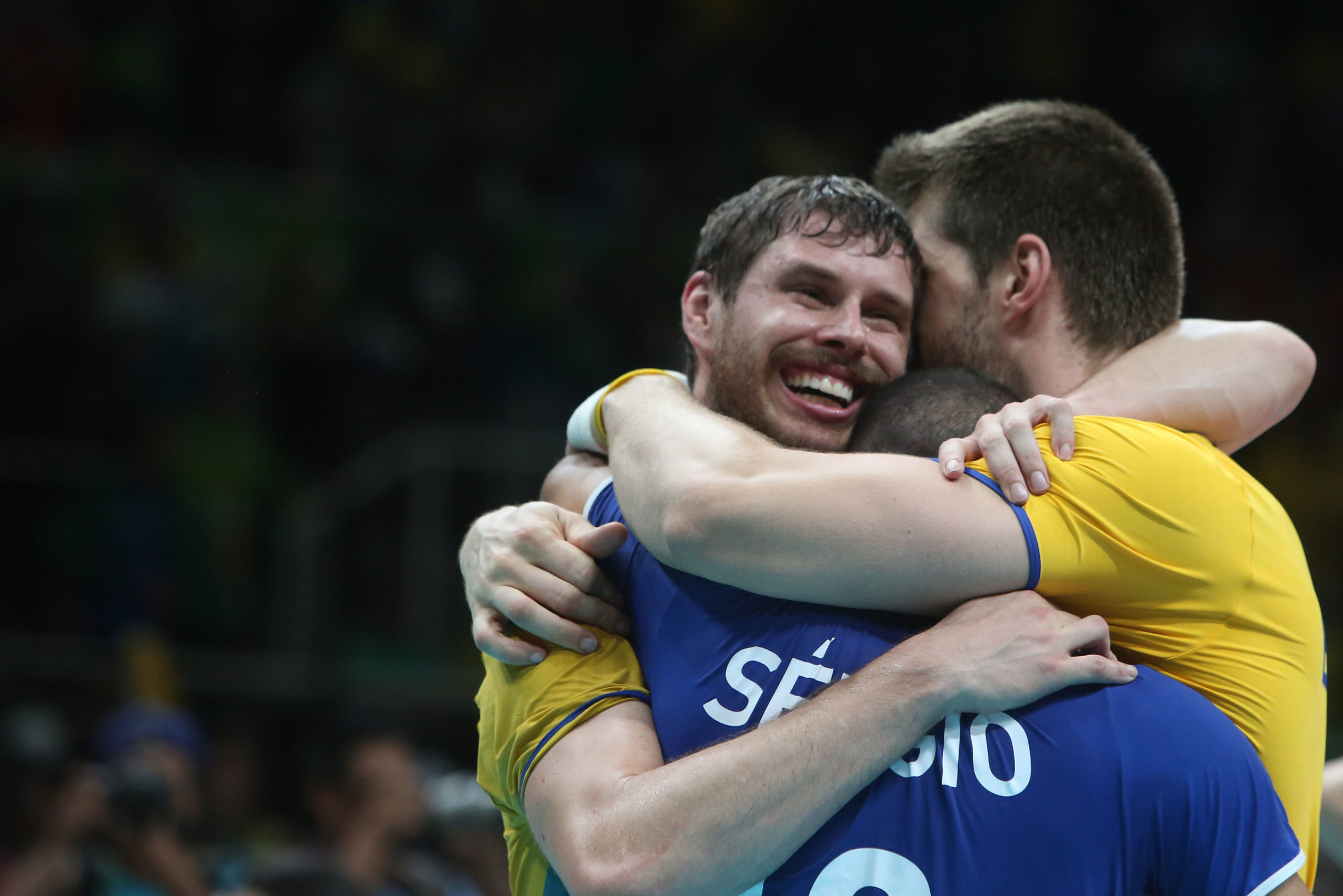
Photo by FIVB
Even after the coach changed in 2017, Bruno continues to lead the Brazilian team as captain and setter. Although the team has had some disappointing results, such as finishing 4th in two consecutive Nations League tournaments and coming 2nd in the 2018 World Championships, they won the 2019 World Cup. With powerful new players such as Alan and Leal emerging, it will be interesting to see how Bruno's baton will control them at next year's Tokyo Olympics.
Serie A
While he was active with the national team, Bruno also took on a big challenge with his club since 2014. It was a challenge to Italy's Serie A. In 2011, he was loaned out for a short period only during the playoff period, but this was his first time to play in a league abroad. His first team abroad was Modena. He returned to Brazil once in the 2016/17 season, but stayed with Modena until the 2017/18 season, leading the team together with Nugapet. In 2014, he was also teammates with Yuki Ishikawa. During Bruno's time with the team, the team achieved good results, winning the league once, the Coppa Italia twice, and the Supercoppa once. Bruno was also entrusted with the captaincy of Modena, and his personality earned him the trust of his teammates and fans even in a foreign land.
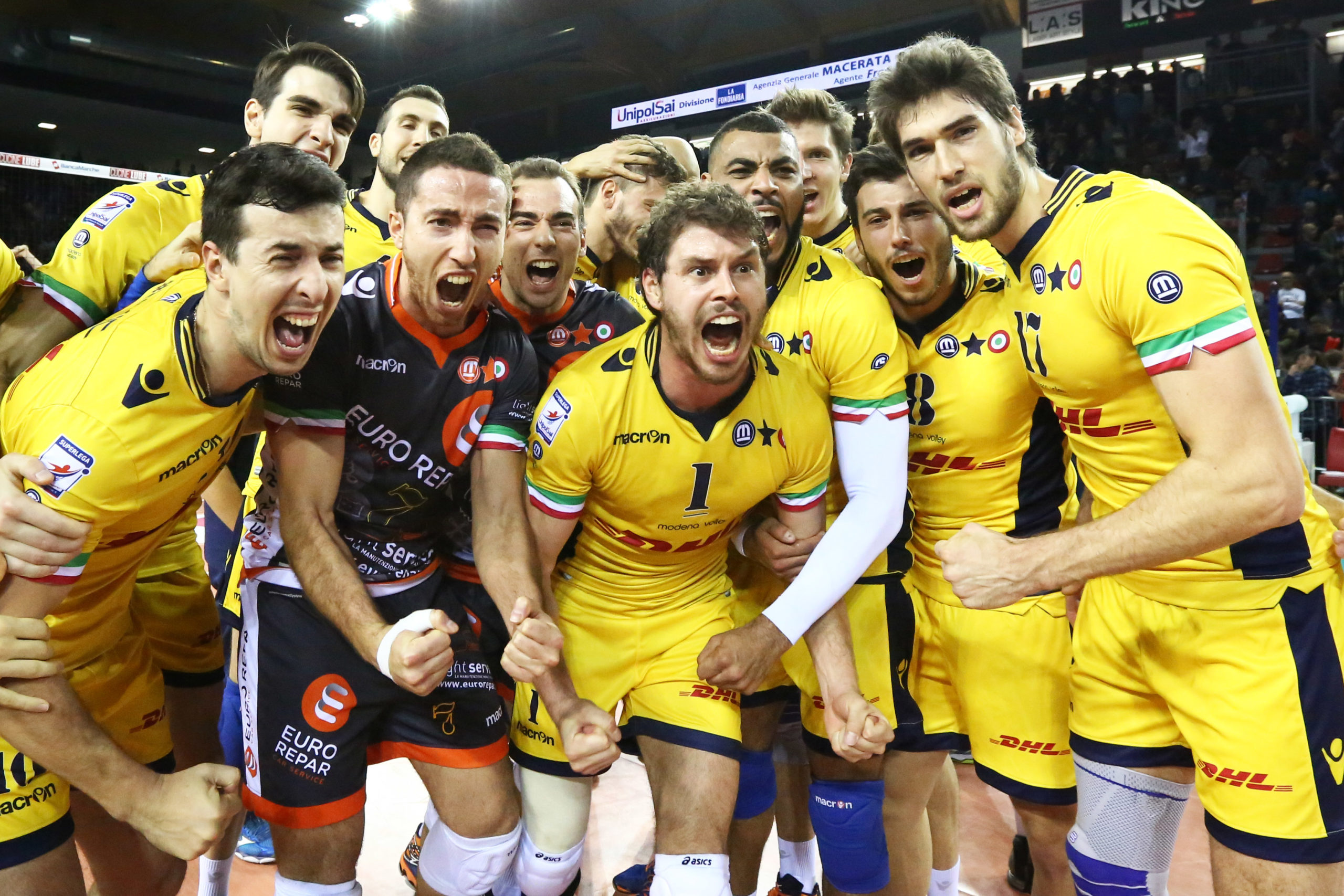
Photo by CEV
From the 2018/19 season, he moved to Roubaix in the same Serie A. There, too, he skillfully controlled powerful attackers such as Juan Torena, Simon, and Real, and won almost all major titles, including the league championship, Coppa Italia championship, European Champions League championship, and World Club Championship championship. From the 2020/21 season, he will return to Brazil and play for Taubate's club.
Number One Setter
Bruno is of course highly skilled as a setter, with ball control and skillful distribution. His combination with Lucas, who has played for the national team for many years, is particularly exciting to watch. However, I think his greatest strength is his humanity. His outstanding leadership, which has earned him the captaincy of any team, and his winning mentality, which has brought momentum to the team. There may be many players who are more technically skilled than him, such as Dececco and Toniutti. However, his humanity is one of a kind. That is why he is number one.
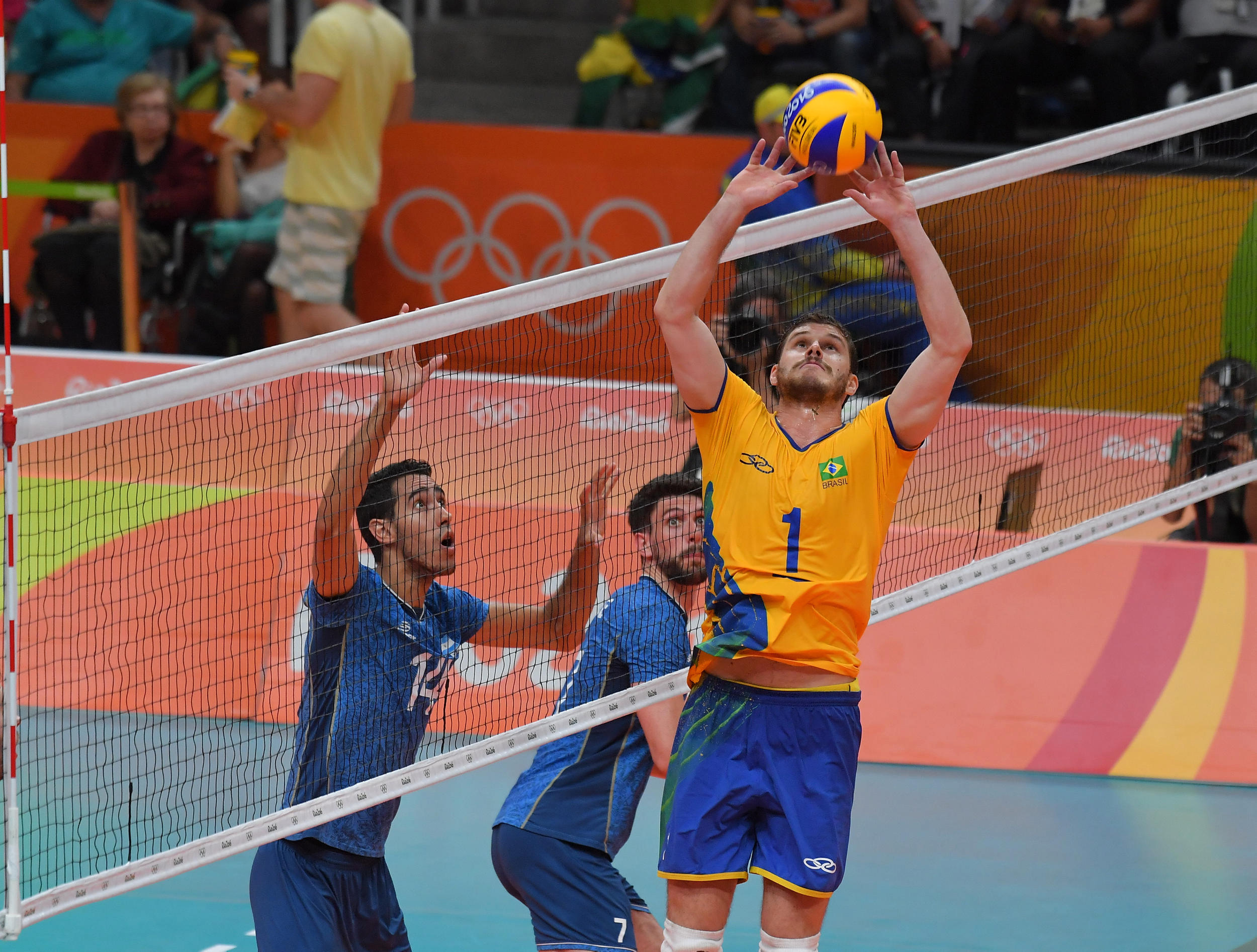
Photo by FIVB
I should also add that he was extremely friendly when I interviewed him previously (laughs).Coppa Italia Men's Final Game Report: Civitanova vs Trento
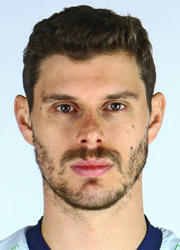
Bruno Rezende
Born July 2, 1986 (34 years old)
Originally from Rio de Janeiro, Brazil
Height: 190cm
Weight: 76kg
Highest point reached: 323cm
Position: Setter
Uniform number: 1 (representative)
Club
2003-12 Florianopolis
2012-14 RJX Rio de Janeiro
2014-16 Modena (Italy)
2016-17 SESI Sao Paulo
2017-18 Modena (Italy)
2018-20 Roubaix (Italy)
2020- Taubate
Representative career
2007-
